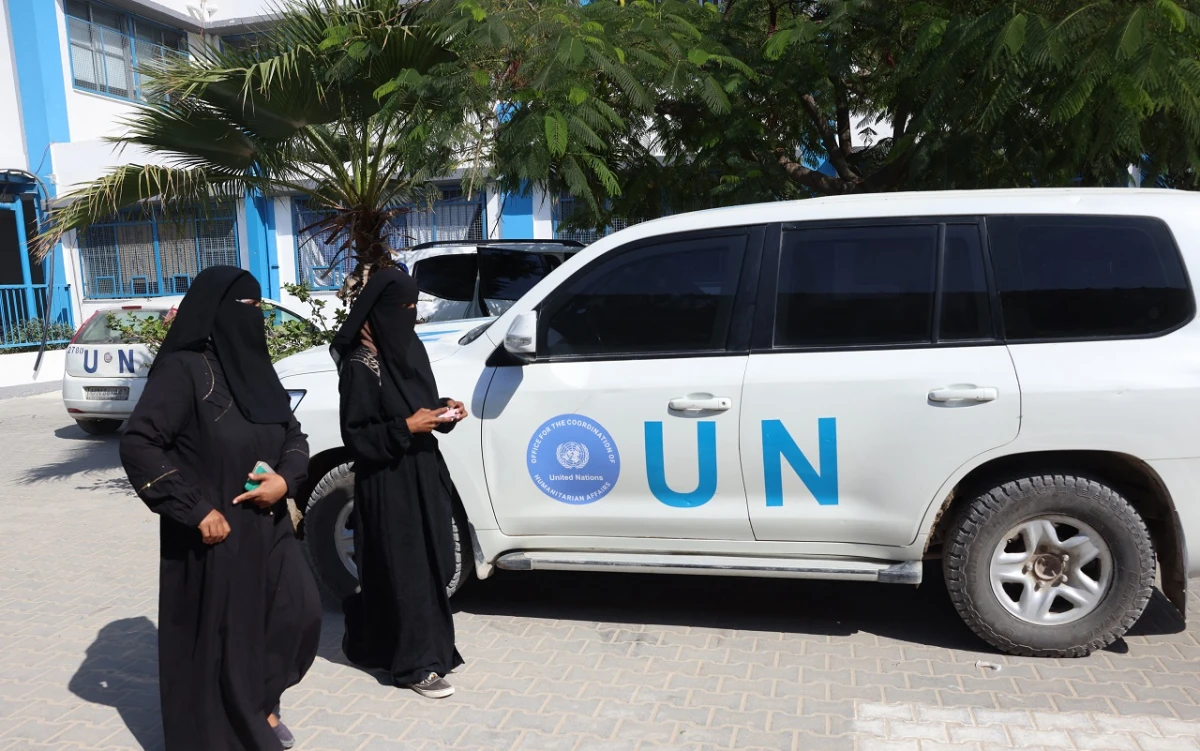
The Israeli parliament voted on a bill banning the activities of the United Nations agency for Palestinian refugees, UNRWA, in Israel, despite strong international objections. The vote was taken at a time when a draft agreement for the release of hostages held by the Palestinian Islamist movement Hamas in Gaza is being analyzed.
Israel accused some agency employees of having participated in the Hamas attack on October 7, 2023 that sparked the war in Gaza. “There is a deep connection between the terrorist organization and UNRWA, and Israel cannot tolerate it,” declared Yuli Edelstein, one of the legislators who promoted the law.
But UNRWA chief Philippe Lazzarini called the ban part of an “ongoing campaign to discredit the agency,” and that it “will only aggravate the suffering of Palestinians.” For more than 70 years, this agency has provided essential education, health and assistance in the Palestinian territories and to Palestinian refugees elsewhere.
For its part, Hamas denounced “Zionist aggression” against the Palestinians after the adoption of the law. Several European countries, including Germany, the United Kingdom and Spain, condemned the Israeli measure.
EYAD BABA/AFP
Israeli Prime Minister Benjamin Netanyahu said on social media that Israel is “ready” to provide aid to Gaza “in a way that does not threaten Israeli security.”
Israel seeks “the eradication of the Palestinians” through “genocide”
So said the UN special rapporteur for the occupied Palestinian territories, Francesca Albanese, who has a mandate from the Human Rights Council, but does not speak on behalf of the organization.
“The genocide of the Palestinian population appears to be the means to an end: the complete expulsion or eradication of the Palestinians from the land. which is an essential part of its identity, and which Israel illegally and openly covets,” he asserted.
“The genocide in Gaza is a tragedy foretold and there is a risk that it will spread to other Palestinians living under Israeli rule.“, stated Albanese. The “objective of ‘Greater Israel’ threatens to suppress the indigenous Palestinian population,” added the Italian jurist.
Hostage negotiation
Israel announced that it had discussed with foreign negotiators in Qatar a new draft agreement on the release of hostages held in Gaza, at a time when war is being waged against Hamas in Palestinian territory and against Hezbollah in Lebanon.
The head of Mossad, the Israeli intelligence services, met in Qatar with the head of the CIA, Bill Burns, and the Qatari prime minister to discuss this “new draft agreement,” Netanyahu’s office announced.
The day before, the Egyptian president, Abdel Fatah al Sisi, whose country is one of the mediators in the conflict in Gaza along with Qatar and the United States, proposed a two-day ceasefire “during which four hostages would be exchanged for some prisoners “who are in the prisons of Israel.
This truce would precede negotiations “within ten days” for a “complete ceasefire and the entry of humanitarian aid” into the Palestinian territory, strictly controlled by Israel. But Netanyahu claimed that Israel had not received a proposal.
“If this proposal had been made, the prime minister would have accepted it immediately,” Omer Dostri, Netanyahu’s spokesman, said in a statement.
Despite international pressure, Israel continues its offensive against Hamas and Hezbollah, two Islamist movements supported by Iran, after bombing military targets in Iranian territory on Saturday, October 26. Iran seeks to build “stockpiles of nuclear bombs to destroy Israel” and “could threaten the entire world,” Netanyahu said.
Saturday’s bombings “changed the balance of forces” between the two countries, declared their Defense Minister, Yoav Gallant, estimating that “the enemy was weakened.”
Iran threatened Israel with “unimaginable” consequences after these attacks carried out in response to Iranian missile fire on October 1 against Israeli territory.
Bombings in Lebanon
After weakening Hamas in Gaza, Israel shifted the bulk of its operations to Lebanon. On September 23, the Israeli army began an air campaign against Hezbollah strongholds, and a week later completed it with a ground offensive. The objective, according to Israeli authorities, is to allow the return to the north of the country of some 60,000 people displaced by Hezbollah’s rocket fire over the past year.
This Monday, October 28, an Israeli bombing killed seven people in the coastal city of Tire, in southern Lebanon, and in the east, several bombings killed another 60 people, according to authorities. Since September 23, more than 1,670 people have died in Lebanon, according to an AFP tally based on official data.
For its part, the pro-Iran militia claimed responsibility for several rocket and artillery attacks on the Israeli border, as well as rocket fire at the Stella Maris naval base, near Haifa, in northern Israel.
“Dozens of terrorists”
In the Gaza Strip, the Israeli army announced it had killed “dozens of terrorists” in Jabaliya, in the north of the enclave, where it launched an offensive on October 6 to, it says, prevent Hamas fighters from regrouping.

-/AFP
The war in the Gaza Strip was triggered by the attack by Hamas militants against Israel on October 7, 2023, in which they killed 1,206 people, mostly civilians, and captured 251, according to an AFP count based on Official Israeli data that includes hostages killed in captivity. Of those kidnapped that day, 97 remain captive in Gaza, but 34 of them were declared dead by the army.
In response, Israel launched an offensive in Gaza that has already left 43,020 dead, mostly civilians, according to data from the Hamas government’s Ministry of Health, considered reliable by the UN.
Source: https://www.noticiascaracol.com/mundo/israel-prohibe-que-en-su-pais-haya-agencia-de-la-onu-para-refugiados-palestinos-cb20


